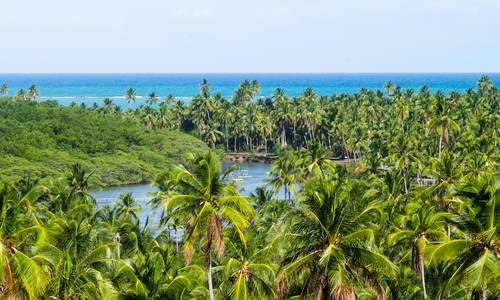Introduction
Salvador - Bahia's sultry and sassy capital - is often included in tailor-made Brazil tours, owing to its colonial heritage, African-Brazilian culture and proximity to some of the country's very best beaches. The city is sometimes referred to as ‘Africa in exile' and this has contributed to Salvador's condomblé religion, samba music and the ballet-like martial art, capoeira - all of which originated in and around Salvador.
Bahia's music and dance traditions can best be experienced during Salvador's spectacular Carnaval. Salvador's is a genuine street festival that's among the liveliest in all Brazil, with drummer troupes called blocos, grand floats and pounding axé music creating a riot of colour and sound.
Salvador was founded in 1549 and was Brazil's capital for more than 200 years. This has left a proud architectural legacy of cobbled streets, pastel-coloured mansion houses and restored palaces, plus Jesuit, Franciscan and Carmelite churches. The Church and Convent of St Francis is especially beautiful, with an opulent interior featuring plentiful gold leaf, azulejos tile work and intricate wooden carvings of angels, birds and mermaids.
Many of the colonial-era buildings branch out from the Largo do Pelourinho - the main square in the heart of Old Salvador. Pelourinho means ‘whipping post' and it was here that slaves were flogged. The historic centre is easily navigable on foot, making it a popular focal point for guided walking tours.





